“One estimate is that 10% of children are being diagnosed with ADHD. I’m not saying there is no such thing, I just don’t believe it’s an epidemic. If you sit children down hour after hour doing low grade clerical work, don’t be surprised if they start to fidget. Children are not for the most part suffering from psychological conditions, they are suffering from childhood.” ~Sir Ken Robinson
Studies in 2022 found:
Diet plays a key role in ADHD symptoms in children, 3 related studies find. Increased fruit and vegetable intake, and the use of micronutrient supplements are linked to reduced symptoms. Food insecurity is associated with more severe symptoms.
The study was published online recently in the journal Nutritional Neuroscience.
The data for this research was collected as part of the Micronutrients for ADHD in Youth (MADDY) Study, which examined the efficacy of a 36-ingredient vitamin and mineral supplement to treat symptoms of ADHD and poor emotional control in the 134 kids aged 6 to 12.
The study that evaluated the effectiveness of the supplement showed that children who took the micronutrients were three times as likely to show significant improvement in their ADHD and emotional dysregulation symptoms than those who took a placebo. That study was published last year in the Journal of the American Academy of Child and Adolescent Psychiatry.
Another study involving the same children, published earlier this year in the journal Nutrients, showed that kids whose families had higher levels of food insecurity were more likely than others to show more severe symptoms of emotional dysregulation, such as chronic irritability, angry moods and outbursts of anger.
The three studies all paint a similar picture, Hatsu said: A healthy diet that provides all the nutrients that children require can help reduce the symptoms of ADHD in children.
“What clinicians usually do when kids with ADHD start having more severe symptoms is increase the dose of their treatment medication, if they are on one, or put them on medication,” Hatsu said.
“Our studies suggest that it is worthwhile to check the children’s access to food as well as the quality of their diet to see if it may be contributing to their symptom severity.”
Scientists have found medication has no detectable impact on how much children with ADHD learn in the classroom. Children learned the same amount of science, social studies, and vocabulary content whether they were taking the medication or the placebo
Past Studies
According to a study published in The Lancet journal diet may help ADHD more than drugs. Listen to an NPR Podcast here. But that is just one of a huge number of studies supporting diet therapy for numerous conditions including ADHD, autism, seizures, and learning difficulties, some of them compiled by the Feingold Association for the Feingold diet here.
American Academy of Neurology’s Position On ADHD Medication
August 10, 2016 “No ADHD drugs for healthy teens and children” The AAN has released a position paper stating that the prescription of ADHD medications to healthy teens and children is misguided. The American Academy of Neurology feels that because doctors have a professional obligation to do what is in the best interest of their patients they should do more to protect against the misuse of ADHD medications. It seems that extra steps and guidelines need to be put in place when considering prescribing these medications. source main page
July 2, 2017, Study: Ritalin use in childhood could induce long-lasting alterations in neurotransmission
Scientists in the Netherlands have found evidence that stimulants used in the treatment of ADHD have different effects when acting on the developing or the mature brain.
The study, published in the journal NeuroImage: Clinical, was the first to investigate the effects of childhood methylphenidate treatment on brain levels of the neurotransmitter GABA in adult ADHD patients. Source Paper
March 3, 2016, ADHD medication and low bone density in children
One of the most common neurodevelopmental disorders of childhood, attention deficit hyperactivity disorder is typically treated with behavioral therapy and medication. But a new study reveals a link between decreased bone density and such medications, prompting researchers to warn physicians of the potential threat these drugs can pose to kids’ developing bones. article
August 18, 2016, Poor Pregnancy Diet Linked To ADHD: Affects Unborn Baby
Eating a balanced diet is key to staving off disease and maintaining a healthy weight, but according to a team of researchers from King’s College, London, it could even influence ADHD risk in unborn babies. More than six million children have gone on to develop attention deficit hyperactivity disorder (ADHD), one of the most common behavioral disorders in children, causing problems with attention, impulsive behavior, and an overactive demeanor. New findings reveal that the onset of the disorder may begin in the womb.
But it went beyond just how the children behaved. Researchers found a mother’s diet during pregnancy had the power to influence epigenetic changes in the baby’s brain. These type of changes affect the genetic code itself, switching genes on and off in a person. In the case of ADHD, a highly processed diet laced with sugar and fat switched on the IGF2 gene, which causes the fetal development of ADHD in the brain. The higher the IGF2 gene was expressed, the higher the child’s ADHD symptoms were between the ages of 7 and 13.
“Our finding that poor prenatal nutrition was associated with higher IGF2 methylation highlights the critical importance of a healthy diet during pregnancy, said the study’s co-author Dr. Edward Barker, ADHD expert and researcher at King’s College, in a statement. “Promoting a healthy prenatal diet may ultimately lower ADHD symptoms and conduct problems in children. This is encouraging given that nutritional and epigenetic risk factors can be altered.”
Parker recommends pregnant women to stay away from processed foods and treats that are high in fat and sugar in order to protect their unborn baby from such genetic changes in the brain Source
March 10, 2016, ADHD is vastly overdiagnosed and many children are just immature, say scientists Many children are needlessly prescribed drugs to combat ADHD when they are just immature, a study suggests
Prescriptions for drugs like Ritalin have doubled to 922,000 a year in the last decade for children diagnosed with ADHD but such medications can cause adverse reactions such as weight loss, liver toxicity, and suicidal thoughts, and in the short term may suppress pubertal growth.
Now a study of nearly 400,000 children between four and 17 years old in Taiwan has shown that the percentage of youngsters diagnosed with ADHD significantly changes depending on the month of birth. Where just 2.8 percent of boys born in September have the condition, the figure jumps to 4.5 percent in August, rising steadily over the school year. For girls, it rose from 0.7 to 1.2 percent.
December 9, 2015, ADHD Drugs Make Big Money, But We Still Don’t Know the Risks
HANDS UP IF any of these things describe your kids, you as a kid, or kids you know: inability to wait for a turn; temper tantrums; fidgeting; inability to finish chores; being too loud; being too quiet. Congratulations! The kid in question might have attention deficit hyperactivity disorder and he (and it’s he twice as often as it’s a she) can take medication to “normalize” him.
ADHD drugs are a $13 billion industry in the United States, and ADHD is now the second most-common childhood diagnosis. But, even though the long-term effects of these amphetamines on the childhood brain are unknown, the numbers will probably continue to rise: The American Psychiatric Association, which has recently expanded the criteria for ADHD diagnosis, receives 20 to 30 percent of its funding from pharmaceutical companies.
Who are not necessarily acting your best interests: Last year, Shire Pharmaceuticals, which makes Adderall, settled with the Department of Justice for more than $50 million based, in part, on allegations that it marketed its ADHD based on unsupported claims that it would prevent, say, poor academic performance. This video gives you a rundown of the situation (but if it makes you mad, don’t throw a tantrum or someone will come medicate you). Watch video here
November 14, 2015, Study finds children and adolescents who take ADHD meds are twice as likely to be bullied, those who are willing to share or sell their ADHD meds are 4.5x as likely to be bullied.
Objective To examine whether a recent prescription for stimulant medication is associated with peer victimization among youth with attention-deficit/hyperactivity disorder (ADHD). Methods Data from 4,965 adolescents attending five public schools who completed an annual web survey over 4 years were used to examine recent stimulant medication prescription and self-reported frequent victimization. Results Adolescents with ADHD and recent stimulant prescription reported more victimization than those without ADHD, but similar to adolescents with ADHD and no recent prescription. Adolescents with ADHD and past 12-month diversion of their prescribed stimulants were at greatest risk of 12-month frequent victimization compared with adolescents without ADHD and adolescents with ADHD but no recent prescription. Youth approached to divert reported more victimization than youth not approached. Youth who diverted reported more victimization than those who did not divert. Conclusions Close parent–prescriber collaboration is needed to ensure effective medical treatment for ADHD without greater risk for victimization and treatment failure. Source
December 10, 2014, New study finds no educational improvement in children using ADHD medications, in fact, these medications may be “sabotaging” children put onto them.
In a recent study, we and our colleague Lauren Jones examined the short- and long-term effects of stimulants such as Ritalin in children. We looked at a sample of 8,643 Canadian children (1,654 of them in Quebec) before and after the 1997 expansion of drug insurance in Quebec, which made prescriptions more affordable. Within a decade of this expansion, 9 percent of children in Quebec were using stimulants, compared with 5 percent in the rest of Canada. By 2007, 44 percent of Canada’s ADHD prescriptions were being written in Quebec, which has a little more than 20 percent of Canada’s population.
One might have anticipated that easier access to medication would lead to improved health and, ideally, better educational performance. Instead, we found evidence that the children using stimulants fared slightly worse. After the insurance expansion, the Quebec children experienced more depression and anxiety — problems that could be side effects of stimulant medication. Meanwhile, there was little evidence of any benefits for the children’s schooling. On the contrary, we found their chances of progressing through school without repeating a grade to be somewhat lower than they had been before the insurance expansion and lower than those of children in the rest of Canada. Their probability of high school graduation likewise declined a bit.
After the insurance policy change, more boys than girls started using stimulants, including many whose initial ADHD symptoms were minimal. Among girls, increased stimulant use was more concentrated among those with high initial levels of ADHD symptoms. Even so, the added stimulant use among girls was associated with more symptoms of anxiety and depression, falling math scores, and a decline in the probability they would go on to get a post-secondary education.” Read more
November 6, 2013, Surge in ADHD diagnoses gets a red flag “Doctors sounded a warning Tuesday over a rise in ADHD diagnoses, saying some children may be needlessly taking powerful drugs intended to correct a poorly understood disorder.
Writing in the British Medical Journal (BMJ), the researchers noted treatment for attention-deficit/hyperactivity disorder (ADHD) had risen massively in recent years, even though its causes are unclear and drugs can have adverse effects.” source
Has your child been diagnosed with attention deficit hyperactivity disorder (ADHD)?
You are not alone. The New York Times reported March 31, 2013, on new data released by the Centers for Disease Control and Prevention that nearly one in five high school age boys in the United States has received a medical diagnosis of attention deficit hyperactivity disorder. ADHD is a common behavioral disorder that affects an estimated 11% of school-age children. Boys are about three times more likely than girls to be diagnosed with it, though it’s not yet understood why. As the NY Times just wrote “These rates reflect a marked rise over the last decade and could fuel growing concern among many doctors that the A.D.H.D. diagnosis and its medication are overused in American children… And now even more teenagers are likely to be prescribed medication in the near future because the American Psychiatric Association plans to change the definition of A.D.H.D. to allow more people to receive the diagnosis and treatment.” Since October of 2011, the American Academy of Pediatrics approved ADHD diagnosis and ADHD medications for a child as young as 4 years old. What does this mean for you and your child?
According to the research Attention Deficit Hyperactivity Disorder (ADHD) is a childhood-onset psychiatric disorder that can persist into adulthood in up to 50% of patients. From a clinical point of view, ADHD is characterized by hyperactivity, mood instability, irritability, difficulties in maintaining attention, lack of organization and impulsive behaviors.
Symptoms
ADHD used to be known as attention deficit disorder, or ADD. In 1994, it was renamed ADHD and broken down into three subtypes, each with its own pattern of behaviors:
1. an inattentive type, with signs that include:
- inability to pay attention to details or a tendency to make careless errors in schoolwork or other activities
- difficulty with sustained attention in tasks or play activities
- apparent listening problems
- difficulty following instructions
- problems with organization
- avoidance or dislike of tasks that require mental effort
- tendency to lose things like toys, notebooks, or homework
- distractibility
- forgetfulness in daily activities
2. a hyperactive-impulsive type, with signs that include:
- fidgeting or squirming
- difficulty remaining seated
- excessive running or climbing
- difficulty playing quietly
- always seeming to be “on the go”
- excessive talking
- blurting out answers before hearing the full question
- difficulty waiting for a turn or in line
- problems with interrupting or intruding
3. a combined type, which involves a combination of the other two types and is the most common
Read more at Kids Health
Drugs for ADHD
Dr. Kay Trotter of KBH University in her article about ADHD and medication writes, “In short, ADHD medication is not for everyone, and you are not a bad parent if you decided to forgo medication in lieu of other treatment options. As you support your child, whether or not to offer medication is ultimately your decision to make.”
The AAP has approved ADHD diagnosis and ADHD medications for a child as young as 4 years old. But why?
ADHD drugs don’t boost kids’ grades whether they’re ADHD or not, studies find. Wall Street Journal July 8th, 2013
“A growing body of research finds that in the long run, achievement scores, grade-point averages or the likelihood of repeating a grade generally aren’t any different in kids with ADHD who take medication compared with those who don’t. (Typically, studies take into account accommodations schools provide kids with ADHD, such as more time to take tests.)
A June study looked at medication usage and educational outcomes of nearly 4,000 students in Quebec over an average of 11 years and found that boys who took ADHD drugs actually performed worse in school than those with a similar number of symptoms who didn’t. Girls taking the medicine reported more emotional problems, according to a working paper published on the website of the National Bureau of Economic Research, a nonprofit economics research firm.” Read more.
In 2010 a study revealed that children with ADHD who use prescription drugs to manage their condition are 10 times more likely to perform poorly at school than ADHD kids who avoid medication.
The report also found that stimulant drugs such as Ritalin and dexamphetamine make no significant difference to the level of depression, self-perception and social functioning of a 14-year-old with attention deficit hyperactivity disorder.
And then last month in February 2013, a new study published in the Journal of the American Academy of Child & Adolescent Psychiatry raised questions about the effectiveness of treating attention deficit hyperactivity disorder in young children with medication, finding that most preschoolers continued to have serious symptoms years after they were originally diagnosed. The study followed children diagnosed with ADHD at 3 to 5 years old and followed them for 6 years. About 62 percent of children who took drugs for their ADHD — mainly stimulants but also other medications, such as norepinephrine reuptake inhibitors — had symptoms of hyperactivity and impulsiveness considered clinically significant, compared to 58 percent of those not treated with medication.
Slate ran an article called The ADHD-ventures of Tom Sawyer If Tom Sawyer were a kid today, he’d be diagnosed with ADHD and ODD and goodness knows what else. “And Tom is not merely ODD. He clearly has attention deficit hyperactivity disorder—ADHD—as well, judging by his inability to concentrate in school. “The harder Tom tried to fasten his mind on his book, the more his mind wandered,” Twain writes at one point. Unable to focus (“Tom’s heart ached to be free”), he starts playing with a tick. This behavior is part of a regular pattern: A few days earlier in church (where he had to sit “as far away from the open window and the seductive outside summer scenes as possible”), Tom had been unable to pay attention to the sermon and played with a pinch bug instead. “
More and more children are now diagnosed with ADHD. Estimates from the 2011 National Health Interview Survey suggest that 5.2 million children, or 8.4 percent of 3- to 17-year-olds in the U.S., have been labeled with the condition, which is now the most commonly diagnosed behavioral disorder in kids. But is ADHD really an epidemic?
Sir Ken Robinson, world-renowned education and creativity expert shares an interesting look at the ADHD epidemic in the following videos
“One estimate is that 10% of children are being diagnosed with ADHD. I’m not saying there is no such thing, I just don’t believe it’s an epidemic. If you sit children down hour after hour doing low-grade clerical work, don’t be surprised if they start to fidget. Children are not for the most part suffering from psychological conditions, they are suffering from childhood.” ~Sir Ken Robinson
Children’s hyperactivity ‘is not a real disease’, says US expert
Neuroscientist says children are being ‘labeled’ as having ADHD when there could be other reasons for their disorder
One of the world’s leading neuroscientists, Bruce D Perry of the Houston ChildTrauma Academy, has suggested that attention deficit hyperactivity disorder (ADHD) is not “a real disease”. “It is best thought of as a description. If you look at how you end up with that label, it is remarkable because any one of us at any given time would fit at least a couple of those criteria…Taking a medication influences systems in ways we don’t always understand. I tend to be pretty cautious about this stuff, particularly when the research shows you that other interventions are equally effective and over time more effective and have none of the adverse effects. For me, it’s a no-brainer.” Read more
THE DRUGGING OF THE AMERICAN BOY
“By the time they reach high school, nearly 20 percent of all American boys will be diagnosed with ADHD. Millions of those boys will be prescribed a powerful stimulant to “normalize” them. A great many of those boys will suffer serious side effects from those drugs. The shocking truth is that many of those diagnoses are wrong, and that most of those boys are being drugged for no good reason—simply for being boys. It’s time we recognize this as a crisis.” Read more
“The Diagnosing and Drugging of ‘ADHD’ Children — An American Tragedy Worsens” ~Dr. Peter Breggin
Clip from an article by Peter R. Breggin, M.D., a Harvard-trained psychiatrist and former full-time consultant with NIMH who is in private practice in Ithaca, New York. Dr. Breggin’s latest book is now available: ‘Psychiatric Drug Withdrawal: A Guide for Prescribers, Therapists, Patients and Their Families.’
“The diagnosing of millions of children with ADHD in order to medicate them with stimulants and other psychoactive chemicals is an American tragedy, growing into a worldwide catastrophe. Never before in history has a society attempted to deal with its children by drugging a significant portion of them into conformity while failing to meet their needs in the home, school, and society. The ethical scientist or physician, the concerned parent or teacher, must feel stricken with grief and dumbfounded that we have allowed the interests of powerful advocacy groups to completely override the interests of our children.
To make matters worse, on Oct. 16, 2011, the American Academy of Pediatrics overrode the FDA and recommended that children as young as age four be diagnosed with ADHD and given the stimulant methylphenidate (e.g., Ritalin, Metadate, Focalin, Daytrana and Concerta).
The scientific literature actually shows that 50 percent or more of children this young when given Ritalin, Focalin, Dexedrine, Adderall and other stimulants will become obviously depressed, lethargic, weepy — but more manageable. Moreover, it’s been proven time and again that the stimulants stunt their growth. In addition, studies show that stimulants will permanently change their brain chemistry, cause shrinkage of brain tissue, predispose children to cocaine addiction in young adulthood, stigmatize them with a false diagnosis and push them toward becoming permanent consumers of psychiatric drugs.” Read more
Seek Second Opinions For Any Diagnosis
ADHD Medication
If it was just a diagnosis that may not be as much of an issue. Safety concerns about stimulants, such as Ritalin, Adderall, and Dexedrine, used to treat hyperactivity in children with ADHD use persist. Since 2007, the Food and Drug Administration has required that manufacturers of ADHD medications develop and include guides alerting patients to the possibility of adverse cardiovascular or psychiatric issues.
The problem is not confined to the United States. Last year the Guardian reported prescriptions for Ritalin in the U.K. quadrupled from 2000 to 2010, and between 2006 and 2010 the United States witnessed an 83-percent increase in sales. The U.K.’s Association of Educational Psychologists complains that physicians are ignoring the professional union’s recommendation not to prescribe ADHD medication to most children under age six. “We need to show young people how to deal with the normal stresses and strains of growing up,” argues Member of Parliament Tessa Munt. “Resorting to powerful drugs only stores up trouble for the future.”
As the sister and mother of individuals diagnosed with ADHD I was concerned about the following Harvard study published in February of 2013 which found childhood ADHD is associated with increased risk of suicide.
And on the heels of this study, Penn State published a study in March of 2013 which found autism is associated with an increased risk of suicide.
There are a number of children diagnosed with autism also diagnosed and treated for hyperactivity. Psychostimulants are used to treat hyperactivity and inattention and include drugs such as methylphenidate (MPH), amphetamine, and dextroamphetamine. There are other medications studied for the treatment of ADHD that have also been studied for the treatment of hyperactivity in ASD
In these two recent studies that found a higher risk of suicide for ADHD and autism, did anyone compare those children on medications for hyperactivity to those that are not?
Experts want suicide risk warning on ADHD drug “Children who take a common drug for attention deficit disorder should be warned about the risk of suicidal thoughts, U.S. pediatric health advisers said on Monday. Several members of an advisory committee to the Food and Drug Administration asked the agency to change the label for Focalin, an attention deficit medicine made by Swiss drugmaker Novartis AG, to reflect this risk. The drug is approved for children aged 6 or older.”
Paxil Is Unsafe For Teenagers Fourteen years ago, a leading drug maker published a study showing that the antidepressant Paxil was safe and effective for teenagers. On Wednesday, a major medical journal posted a new analysis of the same data concluding that the opposite is true. “no clear effectiveness, and mislabeling of serious side effects” Source
Psychiatric Meds: Prescription for Murder? “All depression and ADHD therapies contain FDA-mandated warnings for caregivers to monitor for suicidal thinking, worsening of depression symptoms, and unusual changes in behavior. Patients taking the tricyclic Elavil are cautioned to “seek medical attention for symptoms of mania, increasing psychosis or paranoia.” Literature warns parents of children on Ritalin that “stimulants at usual doses can cause treatment-emergent psychotic or manic symptoms (hallucinations, delusional thinking, mania) in children and adolescents without prior history of psychotic illness.” (Emphasis added.) The PDR also reports clinical trials have identified aggressive behavior and hostility as notable side effects of ADHD medications increased the risk of suicidal ideation in short-term studies in children and adolescents with ADHD.” (Strattera, SNRI)”
ADHD drugs suspected of hurting Canadian kids “Strokes. Convulsions. Hallucinations. Depression. Suicide. All serious side effects suffered by Canadian children as young as 6 taking drugs that treat ADHD. All side effects doctors aren’t required to report. A Star investigation finds this voluntary reporting system is leaving Canadian parents in the dark.”
ADHD Drugs: Hallucinations Not Uncommon FDA Examines Incidence of Psychotic Symptoms in Children Taking ADHD Medications “Treatment-related hallucinations and other psychotic symptoms in children with attention deficit hyperactivity disorder (ADHD) may be more common than previously thought, FDA officials report in the latest issue of the journal Pediatrics. In an earlier investigation, FDA researchers identified more than 850 separate incidences of hallucinations and other psychotic episodes among children taking stimulants used to treat ADHD.”
Drowned in a Stream of Prescriptions “The college student, who allegedly went to doctor knowing how to get the ADHD medication prescription he wanted, had a psychotic meltdown and eventually committed suicide.” ‘
Child victims of the chemical cosh: Harry Hucknall killed himself after taking Ritalin for ADHD “When I was growing up there were lots of kids like Harry — a bit over-active, a bit naughty, who didn’t always do as they were told. Now they are branded with a complaint called attention deficit hyperactivity disorder,’ says the computer engineer at his semi-detached house on the outskirts of Barrow-in-Furness, Cumbria.”
Study Links ADHD Drugs To Sudden Death In Children study by researchers in the US suggests there may be a link between the use of stimulant drugs for attention-deficit hyperactivity disorder (ADHD) and sudden cardiac death in healthy children, but the US Food and Drug Administration (FDA), who funded the study with the National Institute of Mental Health, said because of its limitations, parents, and carers should not stop giving children such medication on the basis of this study but should discuss any concerns with their prescribing doctor.”
And here is one teen on medication for ADHD who had a seizure after –drinking a soda. The soda and no the ADHD medication is the headline for the cause of the seizure. Mountain Dew Causes Seizure in ADHD Teen
Due to the research showing lack of effectiveness as well as the side effects of drugs and use of medicinal interventions for children for conditions, there is an open market for a healthy alternative.
Before going the route of medication there are other options one can try; Research has shown dietary interventions may help ADHD kids more than drugs.
Study: Diet May Help ADHD Kids More Than Drugs
“Kids with ADHD can be restless and difficult to handle. Many of them are treated with drugs, but a new study says food may be the key. Published in The Lancet journal, the study suggests that with a very restrictive diet, kids with ADHD could experience a significant reduction in symptoms. This is still in the beginning stages of the research but so far the study has found indications that a large percentage (> 50%) of children diagnosed with ADHD.The study’s lead author, Dr. Lidy Pelsser of the ADHD Research Centre in the Netherlands, writes in The Lancet that the disorder is triggered in many cases by external factors — and those can be treated through changes to one’s environment. “ADHD, it’s just a couple of symptoms — it’s not a disease,” the Dutch researcher tells All Things Considered weekend host Guy Raz.” Study Listen to the story. NPR All Things Considered
French children don’t need medications to control their behavior
How come the epidemic of ADHD—which has become firmly established in the United States—has almost completely passed over children in France? Why French Kids Don’t Have ADHD Suffer the Children The case against labeling and medicating children, and effective alternatives for treating them by Marilyn Wedge, Ph.D. in Psychology Today Read more
Fidget Classroom Toys to Help For ADHD
Another strategy that doesn’t involve medication. See some examples here. You can find them in many places though.
The Oxford-Durham Study: A Randomized, Controlled Trial of Dietary Supplementation With Fatty Acids
ADHD-Related Symptoms And Fish Oils
“At 3 months after treatment, only 24 children (23.5%) still had CTRS-L scores that placed them in the clinical range for ADHD. Among those receiving active treatment, 7 of the initial 16 no longer fell into this category; in the placebo group, only 1 of 16 improved in this way.” From the Journal Pediatrics
One well known nutritional strategy is the Feingold Diet
List of conditions The Feingold Diet may be helpful for
ADHD
Aggression
Asthma
Autism/PDD/ASD
Bedwetting
Depression
Dyslexia
Learning disability
Ear infections
Eczema
Hives
Urticaria
Eye problems
Headaches and Migraines
Irritable Bowel Syndrome
OCD (Obsessive Compulsive Disorder)
ODD (Oppositional Defiant Disorder)
Conduct Disorder
Violence
Seizures
Sleep Problems
Speech Problems/(apraxia?)
Tourette’s Syndrome (TS
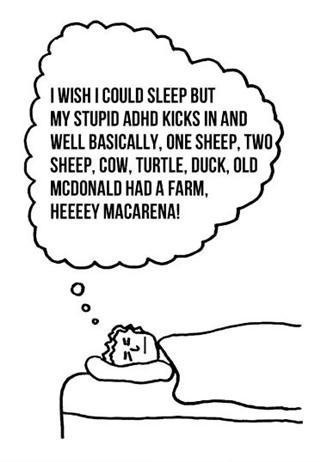 Behavior, Learning, and Health – Feingold Association Booklet PDF
Behavior, Learning, and Health – Feingold Association Booklet PDF
Wealth Of Information
The Feingold Hypothesis
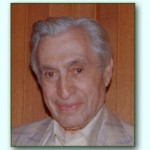 Dr. Feingold was in a unique position to recognize the dietary component of behavioral disorders:
Dr. Feingold was in a unique position to recognize the dietary component of behavioral disorders:
- As an allergist, he was familiar with the long-established use of the elimination diet for determining allergenic sources – and in the case of food dyes to recognize that this was an immunological response, not an allergic reaction.
- As an allergist, he had already been using the elimination diet developed by Dr. Lockey at the Mayo Clinic for control of hidden allergens across a wide range of foods or food additives – a diet developed for skin allergies such as urticaria (hives) and aspirin-induced asthma, for both children and adults.
- As a pediatrician since the 1920’s, he was aware of the historic change in prevalence of disease and behavioral problems in children during the early 1960s (when food dyes, flavorings, and preservatives proliferated on the supermarket shelves).
- As Chief of Allergy at Kaiser Permanente, he had the power to have colleagues search for specific types of patients to observe and to implement clinical studies.
- With his worldwide scientific contacts, he was in a position to know what advances had been made in other countries, especially new researchers on the cross-reactivity of additives and salicylates.
- Having already published peer-reviewed scientific papers on personality changes related to the allergic response, and on the way flea venom works [as happens, which the low-molecular-weight food dyes do, too] – he had the background to put two and two together.
- As a clinician with empathy, he actually listened to his patients even when their reactions did not match any existing textbook descriptions or treatments.
Dr. Feingold’s clinical findings often called his “hypothesis:”
Hyperactivity can be triggered by synthetic additives – specifically synthetic colors, synthetic flavors and the preservatives BHA, BHT (and later TBHQ) – and also a group of foods containing a natural salicylate radical. This is an immunological – not an allergic – response.
| Dr. Feingold’s favorite saying: “Any compound, natural or synthetic, can induce an adverse reaction if the individual has the appropriate genetic profile, i.e., disposition.” |
Other memorable statements by Dr. Feingold:
- “The absence of persistent neurological deficits in the younger child, following control [by diet] of behavior, and the greater incidence of persistent neurological deficits as the child grows older suggests that the offending chemicals operate slowly over a period of years to induce neurological damage. The degree of damage will vary from child to child, depending upon the genetic profile of the individual, and inherent toxicity of the compound, and the dosage.”
~ The Role of Diet in Behaviour
Ecology of Disease, Vol. 1, Nos. 2/3 pp. 153-165, 1982. - “It must be recognized that except for terminology both categories of compounds, medications and food additives, are identical. They are both low molecular weight compounds. In spite of this identity not one of the thousands of compounds introduced into our food supply as additives has ever been subjected to pharmacological studies as required of compounds licensed for use as drugs.”
~ Food Additives in Dentistry
JASPD, February 1977 - “If a practitioner rejects dietary intervention for hyperkinesis [early name for ADHD] on the basis of a non-specific effect, he/she must in good conscience abandon a large part of the practice of clinical medicine which is empirical.”
~ Hyperkinesis and Learning Disabilities Linked to the
Ingestion of Artificial Food Colors and Flavors
presented at American Academy of
Pediatrics, November 8, 1977 - “We have now managed approximately 600 children with the diet. Initially, our successes for control of observed behavior ranged between 30 and 50 percent; however, since we are emphasizing the elimination of BHT (butylated hydroxytoluene) and BHA (butylated hydroxyanisole), our successes for control of behavior average between 60 to 70 percent of our samples.”
~ Dietary Management of Juvenile Delinquency
International Journal of Offender Therapy
and Comparative Criminology, Vol.23, No.1. 1979 - “Children with a history suggesting a possible cause for neurologic damage may experience a complete recovery on the diet, while others with a completely negative history may fail to respond, or may show a partial response, such as improved behavior with deficits in coordination, or cognition, or perception. The history cannot always be precise in disclosing neurotoxic factors. . . . In addition, consideration must be given to less overt factors, such as environmental pollutants of air, soil, and water, which serve as neurobehavioral toxicants during gestation or early childhood.”
~ Hyperkinesis and Learning Disabilities Linked
to the Ingestion of Artificial Food Colors and Flavors
Journal of Learning Disabilities, Vol.9, No.9, November 1976. - At any age, the response is impaired in the presence of true neurological damage. . . . Failure to respond to strict implementation of the diet is an indication to look beyond the diet. Depending upon the biological profile, anything in existence, either natural or synthetic, may be a provoking agent.
~ The Role of Diet in Behaviour
Ecology of Disease, Vol. 1, Nos. 2/3 pp. 153-165, 1982.
The Feingold Diet
How can a simple diet help so many different problems?
ADHD and Speech Impairments
Did you know in some samples those with a diagnosis of ADHD have “undiagnosed” speech and language disorders as high as 40% and 50% of the time?
Related Excerpts:
Comorbidity in ADHD and Associated Outcomes
by Dennis P. Cantwell, M.D.
“…Communication disorders describe developmental speech and/or language disorders. These children have elevated rates of ADHD. It is also clear that children referred for psychiatric problems and given a diagnosis of ADHD have undiagnosed speech and language disorders in a number of cases, as high as 40% and 50% in some samples. The nature of this relationship is not well understood. It may be that the speech and language disorders lead to attentional problems in some particular way or that they are both due to some common underlying factor, such as some type of central nervous system (CNS)
dysfunction.
The long-term outcome of children with speech and language disorders is fairly good for the disorders themselves. However, these children are highly likely to develop learning disorders as a residual outcome of their speech and language disorders. Thus, the presence of
communication disorders is likely to lead in ADHD children, as it does in non-ADHD children, to the development of academic performance problems due to specific learning disabilities in the language- related areas. This probability must be taken into account in the
design of treatment plans to alter long-term negative outcome…”
Impulsivity, Inattention, and Language
Sam Goldstein, Ph.D.
“Toddlers and preschoolers at risk to receive a diagnosis of ADHD are often impulsive and inattentive. These children also demonstrate a higher incidence of problems with language development. In some studies, as many as 50% to 70% of young children with hyperactive and impulsive behavior were experiencing problems in understanding and expressing ideas through language. These children also demonstrated a high rate of learning disability when they entered school. It is unclear whether their temperament contributes to delayed language or delayed language contributes to their difficulty temperamentally.
Before they learn to speak and begin to attach verbal labels to things, infants must touch, feel and taste as a means of gaining information about the world. Once they learn to use language effectively, words replace touch. Impulsive toddlers, however, often have difficulty making this transition. Typically they continue to need to touch and feel things, possibly as a means of gaining sensory input from the world. This problem may lead to difficulty
understanding personal space in older children with ADHD.
In long-term studies, Dr. Walter Mischel and colleagues found a most interesting relationship between a young child’s ability to use language skills while waiting for rewards and later success as a teenager or young adult….
ADHD: Speech and Language
American Speech Hearing Association
“Inattention, hyperactivity, and impulsivity have their effects on speech and language…some children with ADHD also have learning disabilities that affect their speech and language. Evaluation of each child’s individual speech and language pattern is critical to developing an appropriate treatment plan…”
ADHD And Communication Skills
Eileen Bailey Director of ADDHelpline
“There are a number of ADD symptoms that can become barriers to effective communication (see a list here) …The ADD brain, always active, yet lacking in certain chemicals cannot always retrieve the accurate data it needs. The right descriptive word may be filed somewhere in their brain, but not readily accessible. We have all “known” something that we can’t remember and say that it is “on the tip of our tongue.” Somewhere in our brain, we have the knowledge, but at the moment we do not have the ability to locate it.
So it is with an ADD brain. With thoughts constantly moving quickly around and distractions taking attention away, it can be hard to locate the piece of information within the vast storage of the brain. Therefore, the correct words or phrases do not come. The ADD person becomes frustrated because they know what they want to convey, they can feel what they want to convey, and sometimes they think they have conveyed that very thought. But somewhere, it has been misconstrued, or not understood. Those that do not understand ADD may feel lost in the conversation, get annoyed or just look at you with amusement or non-comprehension.
Whatever happens, the communication can break down and cause frustration on both ends…”
Why Did I Have Resistance To ADHD Medication For My Son?
My brother was diagnosed as a child with hyperactivity by Dr. Arnold P. Gold, MD Professor of Clinical Neurology and Pediatrics Division of Child Neurology. Decades ago medications were not used, and dietary methods were not spoken about either that I’m aware of. What was used back then were only behavioral and academic strategies. My brother while being a very difficult child (and brother) during his youth, ended up as a very successful student. He attended the Merchant Marine Academy and after college became one of the youngest captains, went to law school and became the youngest partner in one of the world’s largest maritime law firms. He’s married with 2 children.
So when my son Dakota who went through traumatic birth injuries was diagnosed ADHD as well as CAPD by various doctors and all recommended medication I was resistant. I grew up seeing the success of my brother overcoming his diagnosis of “hyperactivity” which was much more severe than my son Dakota’s, and without medications but instead, with strategies, I didn’t want to medicate my son unless it affected him socially or academically.
I took Dakota to numerous neurologists to try to get an opinion outside of medication. But all neurologists including my co-author of The Late Talker book who is a neurodevelopmental pediatrician recommended medication. One even said to me that I was being “mean” by NOT medicating my son because he didn’t have enough dopamine in his brain.
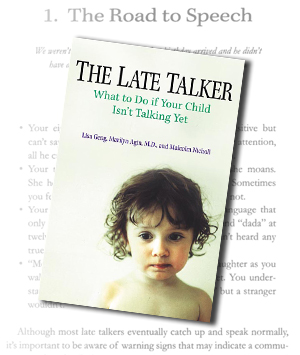
The Late Talker book that I co-authored with one of my son’s neurodevelopmental pediatricians has an entire chapter devoted to the strong parental and professional anecdotal results (overseen by CAPT Joseph R. Hibbeln, M.D. from the NIH) of the therapeutic use of fish oils to help speech impairments like apraxia or autism.
As a newborn Dakota was in intensive care and was in therapy overseen by a neurologist from 3 weeks old due to traumatic head, neck and brain injuries sustained in delivery. It was a very difficult start for Dakota and the least of his problems in comparison to his eating and breathing problems was that also was a late talker. As he overcame the birth trauma with years of early intervention, during school age Dakota had been diagnosed by neurologists and developmental pediatricians as having either ADHD, ADD, or CAPD (central auditory processing disorder) numerous times as well (and ADHD “suspected” and pointed out to me by each of his teachers from preschool to second grade… as well as most babysitters, strangers in the supermarket, and one neurologist who left the exam room for a second to get a pen and came back to find Dakota knocked his entire wall shelf down that I was trying to put back up!)
Even though Dakota has been diagnosed with ADHD (and CAPD) due to educational, nutritional, and therapeutic strategies, and without any medication, Dakota became a brilliant student academically. Dakota was mainstreamed, and early in his school career was classified as gifted LD- gifted because he was tested by the school in the 99th percentile and by private doctors as gifted, and LD due to the ADHD. In his early school career in addition to educational strategies, he received pull out speech therapy two times a week through the school district. Dakota completed his associates degree while in high school and completed his bachelor’s degree in 2 years at the Savannah College of Art and Design (SCAD) in 2 years in game design/3 D animation and got hired out of school working in a medical technology firm in Connecticut at 20 years old when he graduated in 2015.
In addition to therapy and academic strategies, Dakota, like Tanner, has benefited from a specific formula of Omega 3 and Omega 6 fish oils (high in EPA to DHA with a bit of GLA) which my boys have taken since 1999 which kept my son Dakota off the ADHD medications that every doctor had originally wanted to put him on. We’ve been really happy with fish oils along with the use of ayurvedic foods such as Turmeric, Amalaki, Haritaki, Gymnema, Green Tea, Guggul, Cocoa, Chia, Cinnamon, and Cayenne Pepper blended with a whey isolate protein.
While I found great success with fish oils and the Ayurvedic botanicals mentioned above for my children and many others in our nonprofit, there are other nutrients to explore including these 12 natural alternatives to medication recommended by Cognitune.
Dakota is a true success story and a testament to early intervention together with good nutrition. Quite a few doctors have called Dakota the “miracle child” at this point. Perhaps it was part miracle, part nutritional, part therapy, part early intervention, and part brain stimulation. Either way, with or without his ADD and CAPD diagnosis, Dakota is “normal” now, actually better than normal, testing as gifted and working in the technology field, and for that, we couldn’t be happier, no matter how it happened.
– Lisa Geng, President Cherab Foundation
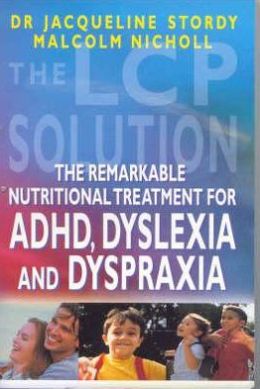
My son Tanner’s story is in this book, and the co-author of this book Malcolm Nicholl is one of my co-authors of The Late Talker book!
How I Discovered Fish Oils For ADHD
Due to Dakota’s little brother Tanner being diagnosed with apraxia, and my findings on fish oils helping with apraxia and dyspraxia, I learned that fish oils were also helpful for ADHD and dyslexia as well. My son Tanner’s first results on fish oils were published in Dr. Stordy’s book The LCP Solution under ‘The Lellow Breakthrough‘. I discovered that like with apraxia a fish oil formula higher EPA to DHA with a bit of GLA was most effective. Using the Nordic Naturals brand name ProEFA and ProEPA (see formula above). Once on the fish oils, Dakota was no longer recommended to be medicated. Remarkably the fish oils kept him off medication.
Fish oil formula I recommend for ADHD Based on Personal Use And Group Feedback;
I’m using the brand name Nordic Naturals -but brand name doesn’t matter -just formula, quality of oils and dosage. I personally use and recommend Nordic Naturals (NN) due to the purity of their oils.
While for apraxia and autism I recommend a 2 NNProEFA 369 to 1 NNProEPA ratio for ADHD I recommend a 1 NNProEFA 369 to 1 NNProEPA. So a 1 to 1 ratio. Even though this page is mainly geared for communication impairments, some on this page for fish oils will be useful to you as a parent of a child with ADHD. And this page goes into how I discovered the apraxia/autism fish oil protocol.
Great book on the subject of fish oils for ADHD is by Dr. Jacqueline Stordy and Malcolm Nicholl called The LCP Solution. Funny enough my son Tanner who has apraxia has his update in The LCP Solution book. Also in my book, The Late Talker that I co-authored with one of my son’s neurodevelopmental pediatrician, we have an entire chapter devoted to the strong parental and professional anecdotal results of the use of specific formulas of essential fatty acids that are rich in fish oils to be therapeutic for “late talker” children with apraxia and similar impairments such as autism.
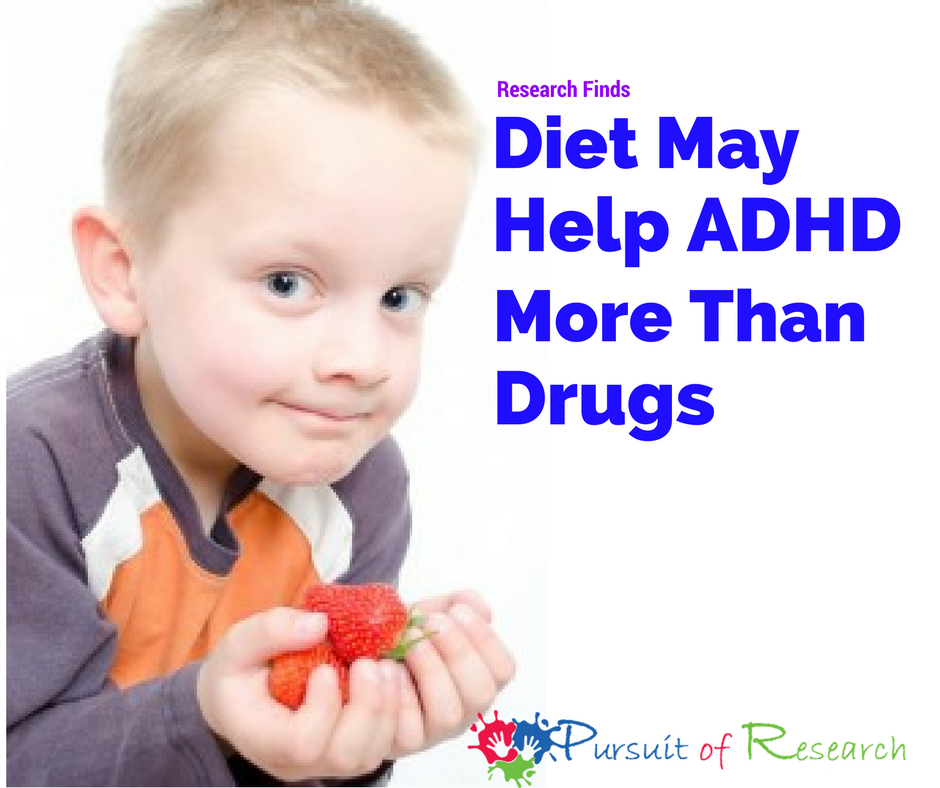
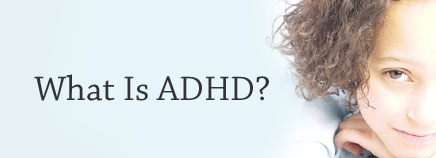

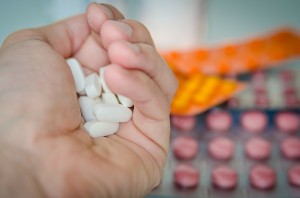
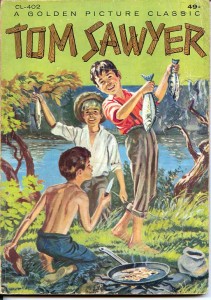

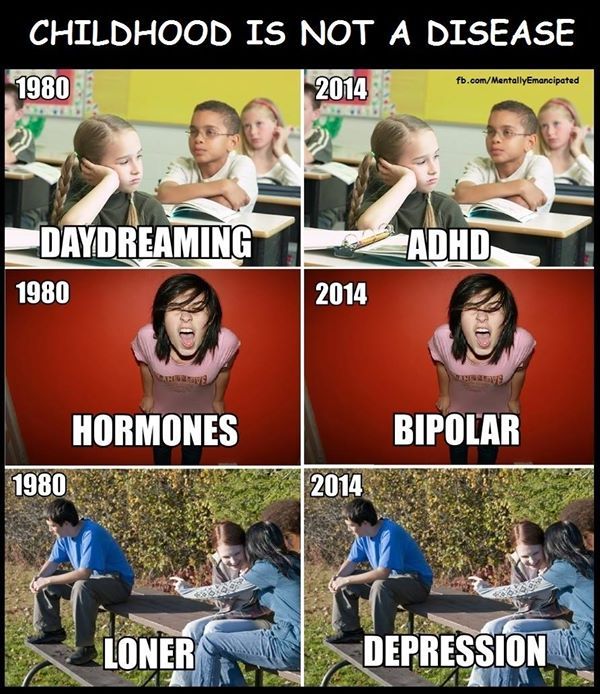

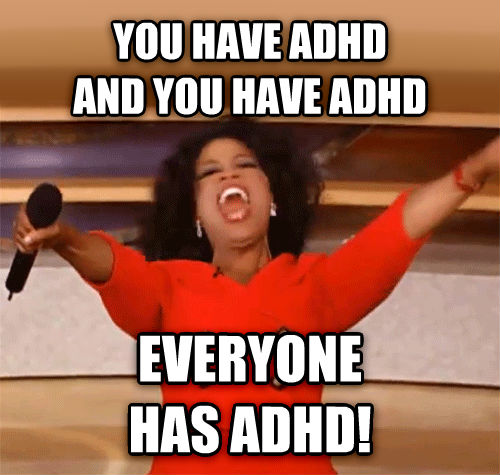
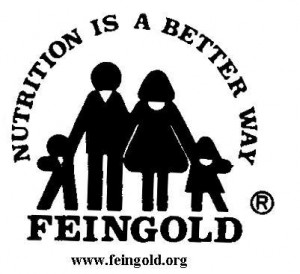
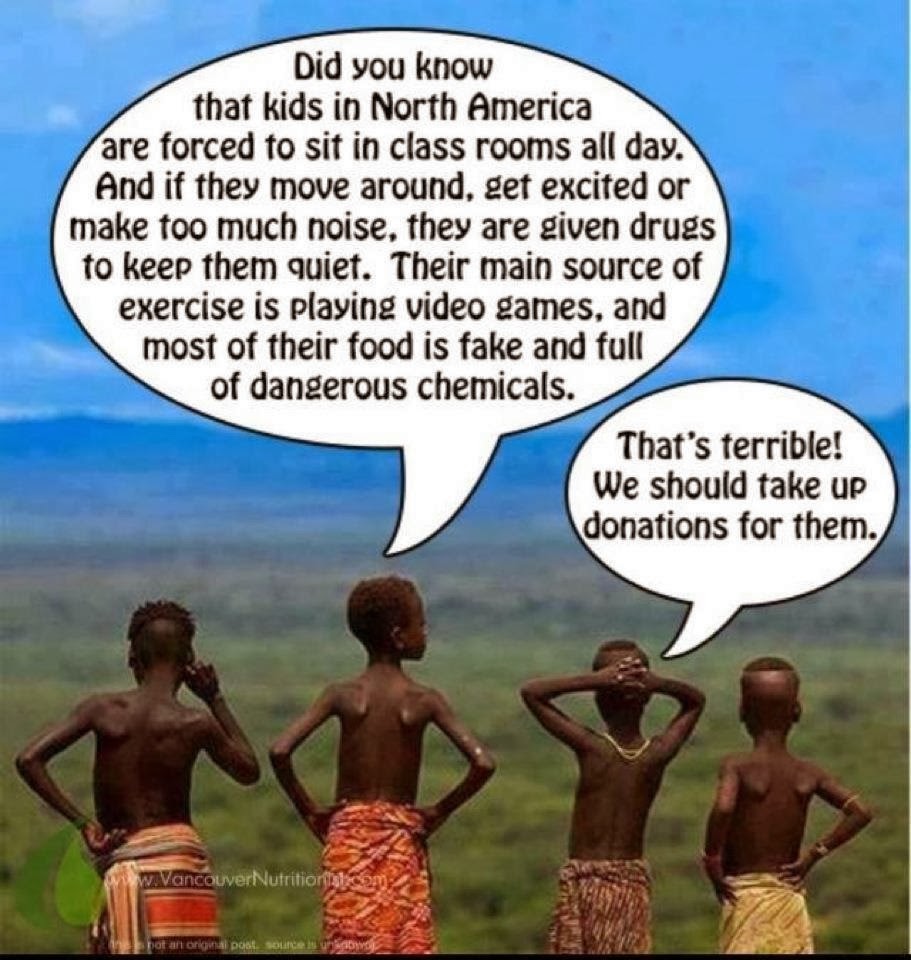
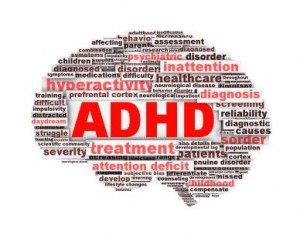
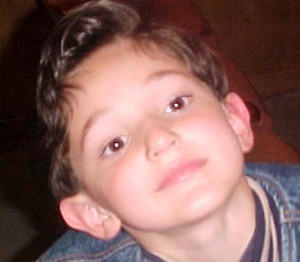
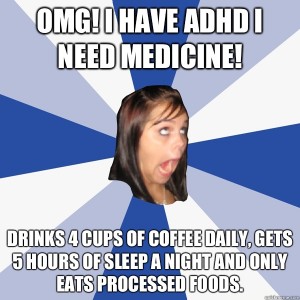
Awesome blog article.Thanks Again. Cool.
I completely agree. My brother was diagnosed with ADHD, ODD, and other things I can’t even remember. Once my parents started homeschooling him they noticed a huge difference in his behaviour, attitude, self esteem, ability to focus and concentrate. I wish they had known about fish oils and diet as well (he is now 25, a college grad living on his own).